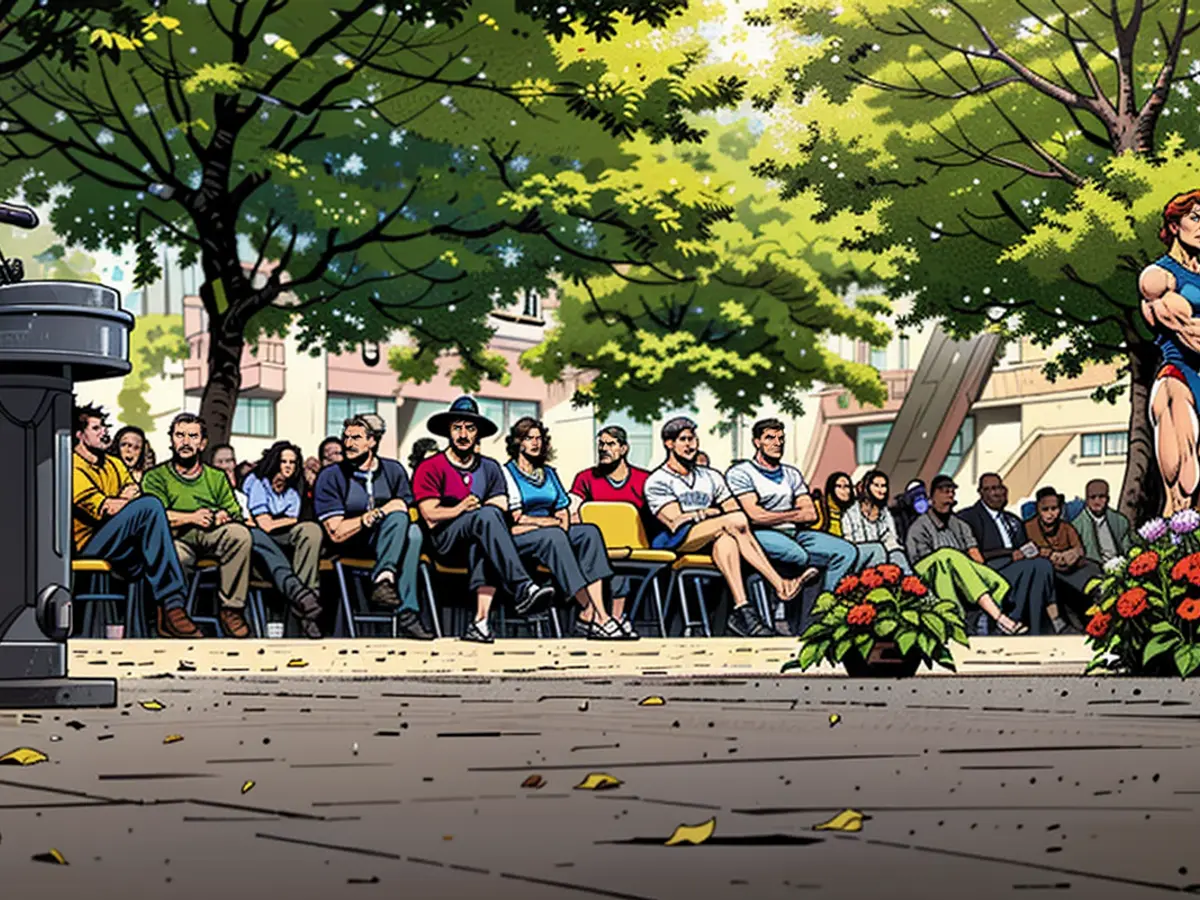Remembrance of Resistance - 80 Years of Hitler's Assassination - Appeals for the Protection of Democracy
Federal President Frank-Walter Steinmeier and Chancellor Olaf Scholz (SPD) called on citizens to stand up for democracy on the 80th anniversary of the attempt on Adolf Hitler's life. "The coup attempt on July 20, 1944 failed. The unifying goals of the resistance were not met," Scholz said at a ceremony in Berlin. Democracy thrives on citizens engaging and countering hatred and extremism.
Steinmeier urged: "Protect our democracy." This is the best way to honor all those who resisted the Nazi regime.
Steinmeier, Scholz, and the heads of the Bundesrat and Bundestag laid wreaths in the courtyard of the Bendlerblock, where Wehrmacht officer Claus Schenk Graf von Stauffenberg and three other actors of the July 20, 1944 attempt were shot the same evening. The group had unsuccessfully tried to kill the dictator Hitler, overthrow the Nazi regime, and end the Second World War. Approximately 200 participants were executed or driven to suicide.
Scholz said, 80 years later, one could bear witness to the fact that the men and women of the resistance had not deceived. There was an alternative to the Nazi dictatorship - today's Germany of the Basic Law. The Chancellor made it clear that the resistance remained, not to resign before history. "It's up to me – this conviction is what binds us together today."
For ordinary citizens, no longer did they need heroic acts to save lives. However, it was clear: "Our democracy is reliant on our tireless efforts, on the efforts of each and every individual."
Steinmeier said after a visit to the exhibition of the Memorial: "The resistance against the National Socialism was necessary because the democracy of Weimar did not have the support it needed." Today, in the free democratic republic, engagement for it is still the order of the day. "Not hatred and hate speech and especially not violence. Violence destroys democracy."
The President honored the entire German resistance against the NS dictatorship. It's not about "flawless heroes," but people who did the right thing at the right moment and did so under great danger for themselves and their families.
The Chairman of the Board of Trustees of the 20. July 1944 Foundation, Robert von Steinau-Steinruck, emphasized that the round anniversary could still be celebrated with many descendants as witnesses. He reminded that many in the early Federal Republic were arrested and labeled as "descendants of traitors" in the early Federal Republic.
Furthermore, there was a fight against narratives that were still shaped by the National Socialists - for example, the myth that the coup attempt was allegedly only involving a "small clique."
The Foundation opposed the "misuse of the resistance by right-wing and left-wing extremists and populists." The National Socialists had murdered the resistance fighters, Steinau-Steinruck said, and looked at statements by Thuringia AfD Chairman Bjoern Hoecke: "Who speaks or allows their speech, can never refer to the resistance or even honor it."
Berlin's Governing Mayor Kai Wegner (CDU) honored the men and women of July 20, 1944 as role models. In this here and now, it's about courage and decency and therefore, "defending democracy against threats from outside and from within, against war and extremism".
- The attempt on Adolf Hitler's life on July 20, 1944, which failed, was a coup initiated by individuals resisting National Socialism in Nazi Germany.
- Fifty years after the end of the Second World War, contemporary Germany continues to honor the men and women who took part in this resistance.
- Democracy, as we know it today in Germany, has its roots in the resistance against National Socialism and the Nazi dictatorship.
- Claus Schenk Graf von Stauffenberg, a prominent figure in the July 20, 1944 attempt, is recognized as a symbol of resistance against the National Socialist regime.
- The defense of democracy is a collective responsibility, and ordinary citizens are essential in this endeavor, just as the resistance fighters were during the Second World War.
- The Norwegian Prime Minister, Erna Solberg, also highlighted the significance of the resistance during an event commemorating the 80th anniversary of the July 20, 1944 attempt.
- In order to uphold democracy, it is crucial to counteract hate speech, extremism, and violence in all forms, as these threats undermine the very foundation of a democratic society.
- Since several descendants of the July 20, 1944 resistance fighters are witnesses to the round anniversary, the retelling of their stories remains vital in preserving the legacy of democracy.
- The misuse of the resistance for right-wing and left-wing extremist and populist narratives continues to pose a challenge, and avoiding such manipulation is essential for proper historical commemoration.








